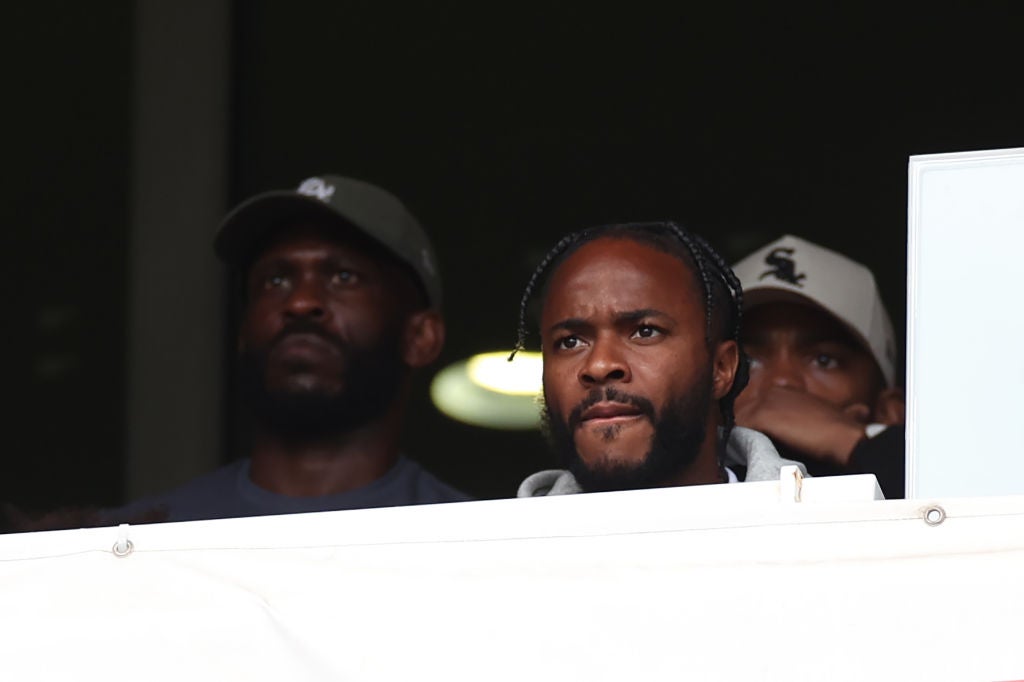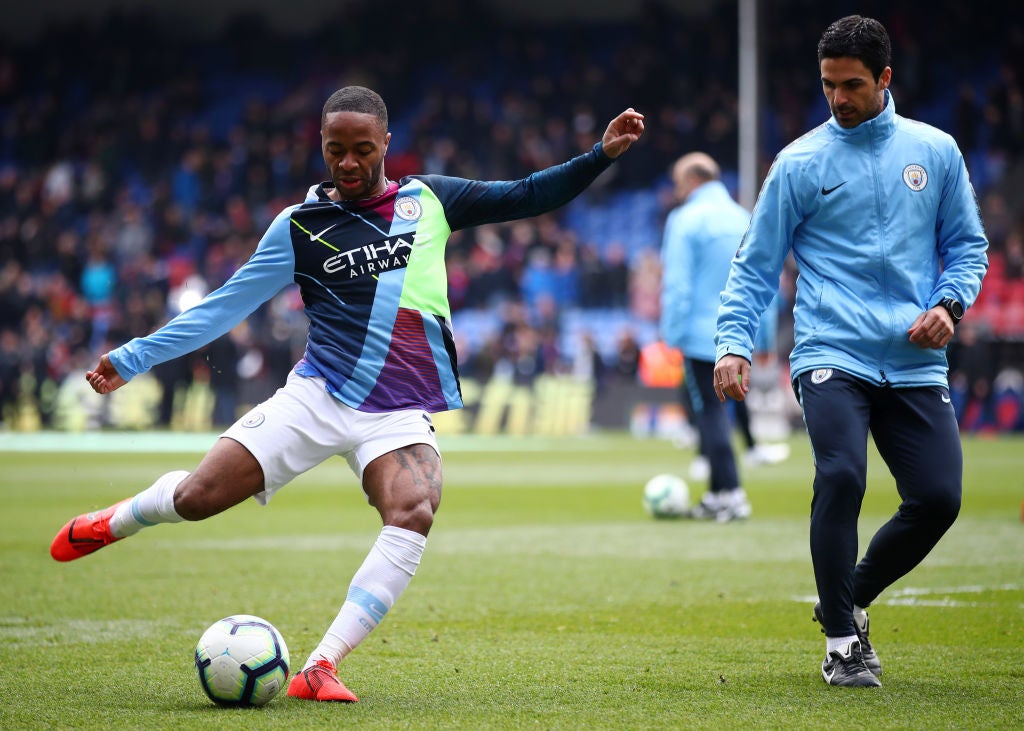Inside Raheem Sterling’s Arsenal move – and how new signing can lift the mood at the Emirates
Arsenal signed Sterling on loan on deadline day and will pay less than half of his Chelsea wages during the season

Your support helps us to tell the story
From reproductive rights to climate change to Big Tech, The Independent is on the ground when the story is developing. Whether it's investigating the financials of Elon Musk's pro-Trump PAC or producing our latest documentary, 'The A Word', which shines a light on the American women fighting for reproductive rights, we know how important it is to parse out the facts from the messaging.
At such a critical moment in US history, we need reporters on the ground. Your donation allows us to keep sending journalists to speak to both sides of the story.
The Independent is trusted by Americans across the entire political spectrum. And unlike many other quality news outlets, we choose not to lock Americans out of our reporting and analysis with paywalls. We believe quality journalism should be available to everyone, paid for by those who can afford it.
Your support makes all the difference.Raheem Sterling was in the Arsenal dressing room after the 1-1 draw with Brighton, where he saw many of his new teammates rage about the refereeing performance. Mikel Arteta was even angrier but mindful of keeping composure. The feeling at Arsenal is that Sterling can offer the lift the team, in a few senses.
This was why Arteta was hugely enthusiastic about the deal, in what was some relief for Sterling after a tense few weeks, and tough final negotiations.
Arsenal had wanted an attacking option all summer, due to the awareness that their forward depth isn’t abundantly strong. The preference would have been for a top target like Nico Williams, but he wants to eventually go to Barcelona. Leipzig’s Benjamin Sesko and Newcastle United’s Alexander Isak would have involved sagas that Arsenal didn’t want to get into this summer, with Sesko also wondering whether the time was right to move. Arsenal were willing to spend for the right target but, if they couldn’t get one, there was a desire to move players around to give even greater breathing space for future windows. The club were not close to Profit and Sustainability Rule limits but selling Eddie Nketiah to Crystal Palace and loaning Reiss Nelson to Fulham is understood to have got well over £100,000 off the wage bill.
They still didn’t want to keep themselves short, though. Once Williams was off the table for the last week of the window, Arsenal felt it best to hold their nerve and wait to see what came available. The analysis was that the window had been quiet because so many clubs needed to sell, and that would bring the potential for good deals in the final hours as leverage shifted. That was exactly what happened.

They didn’t want to rush anything, either. It was about the right player coming up. Arsenal now feel they are in a position where the core of the squad is strong so any new signing just has to properly fit. Arteta in part went off Ivan Toney due to the fact he didn’t feel the chemistry would be right with the group. Arsenal no longer want to get into situations of just signing an option for the sake of it, as they are aware of what it has done to them in the past, and feel there are other costs that come in. It can limit options, but for a reason. The entire point is to create a squad that is as finely honed as possible, because that maximises performance and can see a team push their outer limits of performance.
Sterling had been first raised as an option at the start of the week but serious discussions didn't take place between Arsenal and Chelsea until Thursday afternoon. The 29-year-old’s situation was proving an increasing problem for the Stamford Bridge hierarchy.
There had already been a few surprising twists. While Manchester United were genuinely interested, in part due to Dan Ashworth’s praise for Sterling, both West Ham United and Crystal Palace had turned down the chance to sign him. One view expressed within the Premier League was a concern that, because Sterling has played so much football since the age of 17, his “physical age” is now much older than 29.
Arteta, like Ashworth, didn’t go along with that. He feels Sterling is still fine in the right system, as was briefly seen under Mauricio Pochettino. It was another factor in the enthusiasm for the signing, as the forward already understands Arteta’s tactical approach due to their time together at Manchester City and its similarity to Pep Guardiola’s. The Basque has no concern about Sterling's physical condition. He has seen first-hand how he looks after himself.

Arteta was more concerned about Bukayo Saka’s fitness. Arsenal are highly conscious of overusing their young star, and how they will almost have a game every three days for the three months after this international break.
Important in that, too, was Sterling’s mentality. Despite perceptions of the player in some quarters due to the way he left Liverpool, Arteta thinks he is a leader, with a good effect on teammates. Sterling also brings experience to a young Arsenal squad now, having won so much at City.
It all just made sense for Arteta, so the club pressed ahead from Friday morning. The initial problem was his £325,000-a-week contract at Chelsea, with the player’s camp fairly insisting they should get what they were due. Sterling was still willing to take a pay cut at Arsenal in the event of a permanent move. It quickly became apparent that would require too much negotiation in time for the deadline so a loan option was instead raised that morning.
That just required negotiation of a different type: who would pay what. While Chelsea were insistent on a loan fee for every player going out on temporary deals, Arsenal made it clear that wasn’t happening for them. Ultimately, Chelsea’s need to get players out trumped everything else in discussions.

Arsenal felt their negotiation position was strong, and acted like that. There was a willingness to walk away and just keep Nketiah and Nelson.
It resulted in a deal where no loan fee was paid and Arsenal are now paying far less than 50 per cent of Sterling’s £325,000 wages. Some close to the talks insist it is as little as £100,000 a week. This has been put to both clubs.
By Friday night, after tough negotiations, there was quick advancement. Sterling was delighted. Arsenal were beaming about what they felt was a great deal.
The mood had changed by Saturday lunchtime. The hope is that Sterling can help with that.



Join our commenting forum
Join thought-provoking conversations, follow other Independent readers and see their replies
Comments